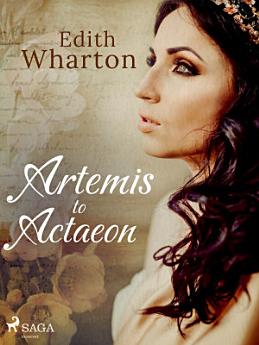Artemis to Actaeon
জুল ২০২২ · Lindhardt og Ringhof
ই-বুক
98
পৃষ্ঠা
reportরেটিং ও রিভিউ যাচাই করা হয়নি আরও জানুন
এই ই-বুকের বিষয়ে
While she might be best known as the author of ‘The Age of Innocence’ (adapted for film, and starring Michelle Pfeiffer, and Daniel Day-Lewis), Edith Wharton wrote an extensive range of novels, journals, and poetry.
Containing 24 poems, ‘Artemis to Actaeon’ muses on the themes of life, love, death, and the passing of time, with a few well-chosen words set aside for her beloved France. As the title suggests, there is plenty of classical inspiration as Wharton draws on ancient legends surrounding mythical figures, such as Orpheus, and Actaeon.
Her writing is lyrical and has a yearning quality to it, particularly in poems such as ‘All Souls,’ and ‘Vesalius in Zarate.’ A superb collection for those familiar with Wharton’s work, and those new to her.
Edith Wharton (1862 – 1937) was an American designer and novelist. Born in an era when the highest ambition a woman could aspire to was a good marriage, Wharton went on to become one of America’s most celebrated authors. During her career, she wrote over 40 books, using her wealthy upbringing to bring authenticity and detail to stories about the upper classes. She moved to France in 1923, where she continued to write until her death.
Containing 24 poems, ‘Artemis to Actaeon’ muses on the themes of life, love, death, and the passing of time, with a few well-chosen words set aside for her beloved France. As the title suggests, there is plenty of classical inspiration as Wharton draws on ancient legends surrounding mythical figures, such as Orpheus, and Actaeon.
Her writing is lyrical and has a yearning quality to it, particularly in poems such as ‘All Souls,’ and ‘Vesalius in Zarate.’ A superb collection for those familiar with Wharton’s work, and those new to her.
Edith Wharton (1862 – 1937) was an American designer and novelist. Born in an era when the highest ambition a woman could aspire to was a good marriage, Wharton went on to become one of America’s most celebrated authors. During her career, she wrote over 40 books, using her wealthy upbringing to bring authenticity and detail to stories about the upper classes. She moved to France in 1923, where she continued to write until her death.
ই-বুকে রেটিং দিন
আপনার মতামত জানান।
পঠন তথ্য
স্মার্টফোন এবং ট্যাবলেট
Android এবং iPad/iPhone এর জন্য Google Play বই অ্যাপ ইনস্টল করুন। এটি আপনার অ্যাকাউন্টের সাথে অটোমেটিক সিঙ্ক হয় ও আপনি অনলাইন বা অফলাইন যাই থাকুন না কেন আপনাকে পড়তে দেয়।
ল্যাপটপ ও কম্পিউটার
Google Play থেকে কেনা অডিওবুক আপনি কম্পিউটারের ওয়েব ব্রাউজারে শুনতে পারেন।
eReader এবং অন্যান্য ডিভাইস
Kobo eReaders-এর মতো e-ink ডিভাইসে পড়তে, আপনাকে একটি ফাইল ডাউনলোড ও আপনার ডিভাইসে ট্রান্সফার করতে হবে। ব্যবহারকারীর উদ্দেশ্যে তৈরি সহায়তা কেন্দ্রতে দেওয়া নির্দেশাবলী অনুসরণ করে যেসব eReader-এ ফাইল পড়া যাবে সেখানে ট্রান্সফার করুন।








